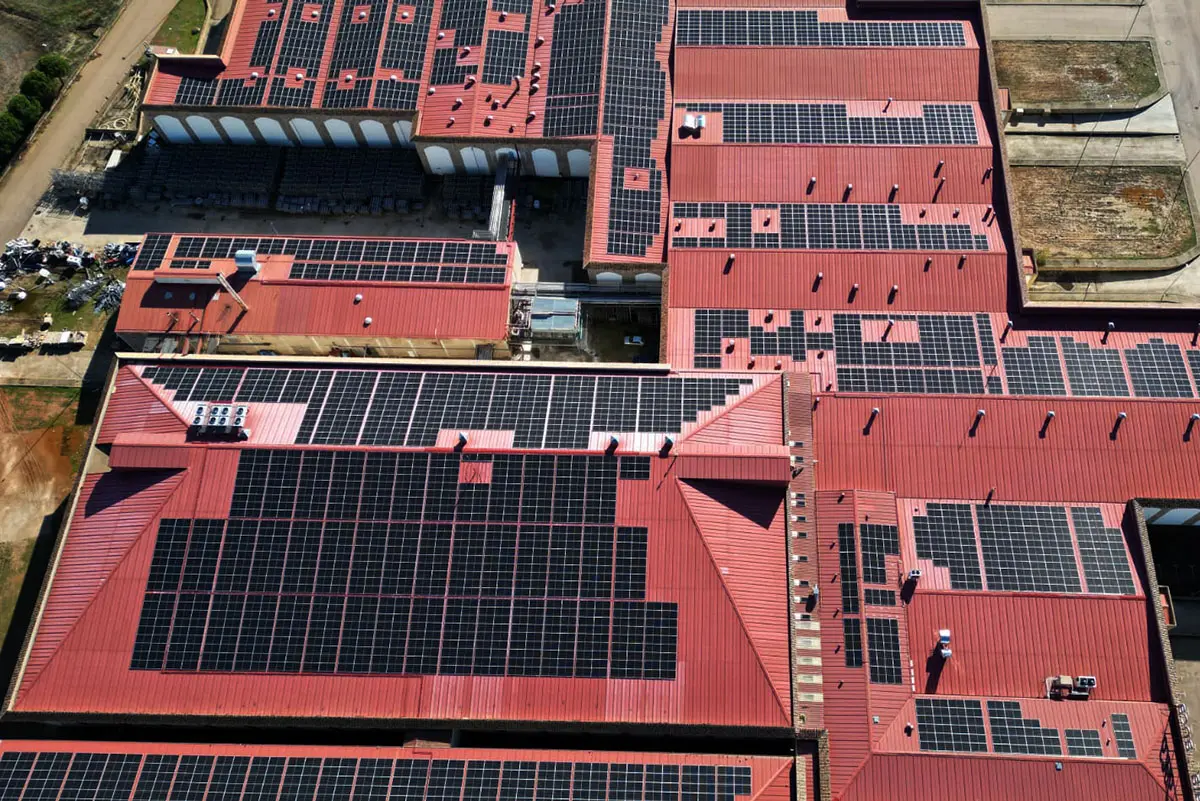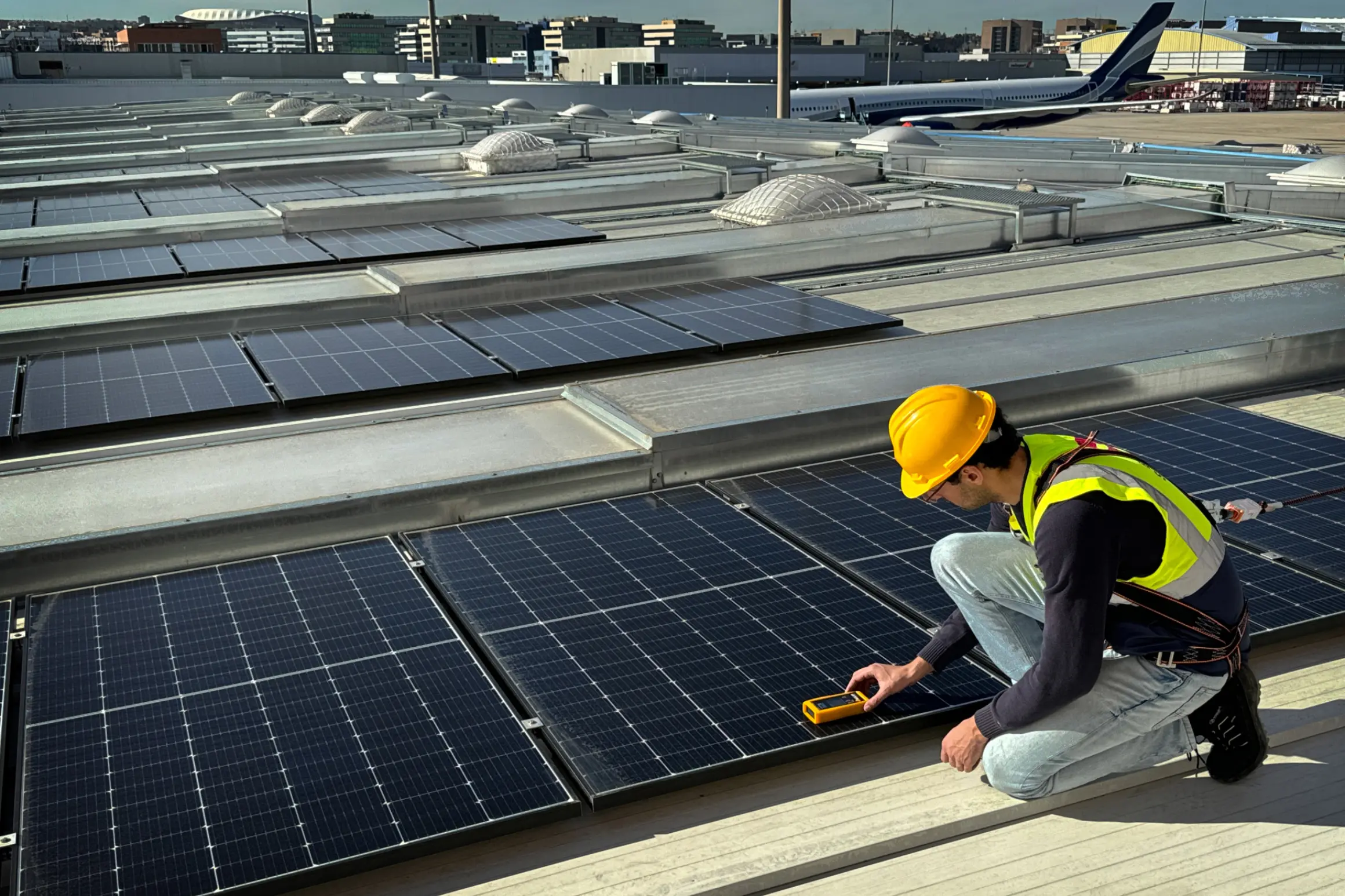This website uses cookies so that we can provide you with the best user experience possible. Cookie information is stored in your browser and performs functions such as recognising you when you return to our website and helping our team to understand which sections of the website you find most interesting and useful.
Insights

Bright Sunday and Jamón Salamanca in a long term partnership to reduce energy costs and carbon emissions.
Jamon Salamanca is one of Spain’s largest producers of what is regarded as the best ham in the world, Jamón Ibérico. The company has now taken another step towards a more sustainable future. On the roof of one of their largest sites outside Salamanca, they now have a 2 MW solar PV system with 3,690 solar panels.
Do you know that every second, the sun radiates about 386 billion billion megawatts of power. That's enough to power over 400,000 Earths!

Get your own power plant on your roof. Solar PV panels capture the sunlight and generates electricity through the photovoltaic effect Read more about what actually happens.
Bright Sunday using heat cameras with infrared imaging for Early Detection and Optimization of Solar PV Installations.

PV systems are not immune to issues that can compromise their efficiency and life time. One important tool for inspecting and detecting issues is the use of infrared (IR) or heat cameras.
Bright Sunday enters a partnership with the #1 ranked bank globally, Triodos Bank, to finance clean energy projects.

The collaboration means more funding to assist companies that want to reduce their CO2 footprint but don’t prioritize or feel they have the capacity to allocate people or money for this.
The average new Bright Sunday customer will cut its electricity costs by 41%, with zero upfront investment, with our solar PV Power Purchase Agreement (PPA).

“We have recently offered some customers in Spain 75% savings, but that is not very common. 41% savings is an average”, says Niklas Engström, CEO at Bright Sunday.
Anyone buying a PV system has to make a large initial investment. It is nevertheless worth it. But is it really you that should do the investment?

“Not only to avoid the capital investment but also to eliminate the headache of being stuck with a system not performing as intended we believe more customers will choose solar as a service”, says Niklas Engström, CEO, Bright Sunday.
– It is with great pleasure that we welcome Stefan Nyberg as the new CMO of Bright Sunday, says Niklas Engström, CEO. With over 25 years of experience from sustainability startups, international scaleups and telcos Stefan brings a wealth of expertise relevant for our future growth.

With Stefan we also get passion, customer focus, business creativity and can do-attitude – exactly what a scaleup company like Bright Sunday needs, Niklas Engström continues.

